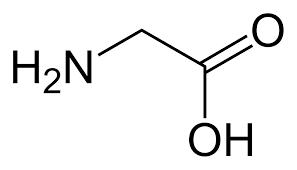Glycine

Product Description
Glycine is a chemical compound with various industrial, pharmaceutical, and biochemical applications.
Product:
Glycine
CAS:
56-40-6
Synonym:
Aminoacetic acid; Glycic acid
Structure:

Typical Characteristics
Appearance
Colorless crystalline solid
Density
1.161 g/cm3
Melting point
233 °C
Molecular Weight
75.07
Odor
Odorless
Purity
≥99%
Uses, Applications & Markets
Key applications
get a quote



Glycine used in many
industry applications
Glycine is a chemical compound with various industrial, pharmaceutical, and biochemical applications. Here are some of its uses:
- Pharmaceuticals: Glycine is used as a pharmaceutical ingredient in medications and supplements due to its role as a building block for proteins and its involvement in various metabolic processes.
- Food Additive: It is utilized as a food additive (E number E640) for various purposes, including as a flavor enhancer, stabilizer, and buffering agent in processed foods and beverages.
- Cosmetics and Personal Care: Glycine is used in cosmetics and personal care products, such as skincare formulations and hair care products, for its moisturizing and conditioning properties.
- Industrial Applications: It serves as a chemical intermediate in various industrial processes, including the production of polymers, pharmaceuticals, agrochemicals, and specialty chemicals.
- Biotechnology: Glycine is used in biotechnological applications, such as cell culture media, protein purification, and as a component of buffers for biochemical assays and experiments.
- Animal Feed: It may be used as a dietary supplement for livestock and poultry to promote growth and improve feed efficiency.
- Health Supplements: Glycine supplements are taken for various health benefits, including supporting muscle growth, improving sleep quality, and promoting cognitive function.
- Textile Industry: Glycine finds application in the textile industry as a dyeing assistant and as a chemical additive in textile processing.
- Water Treatment: In some applications, glycine is used in water treatment processes as a chelating agent and as a component of pH buffers.
- Photography: It has historical use in photography as a component of developer solutions.